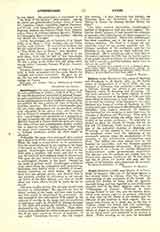

Aufsees, JOBST BERNHARD VON, canon of Bamberg and Wurzburg, b. March 28, 1671, on the family estate of Mengersdorf; d. April 2, 1738. He was baptized a Lutheran, but educated (1683-90) as a Catholic through the efforts of his uncle Carl Sigmund, canon of Bamberg and Wurzburg. He was soon advanced to the same dignity in both churches, was provost of Bamberg in 1723, and held other offices of distinction in both cities. After 1709 he devoted the revenues of his benefices to the establishment of a house of studies at Bamberg: in 1728 he bestowed upon it the sum of 400,000 gulden (about $200,000). This Aufsees Seminary, or Institute, was destined for the reception of poor boys from the Dioceses of Bamberg and Wurzburg. They were to be supported there during the entire time of their studies at the public academies. He originally intended to place the Jesuits in charge, but by his last will (February 17, 1738) turned it over to the care of the cathedral chapters of Bamberg and Wurzburg. It was opened in 1741, and continued its beneficent career until the beginning of the nineteenth century, when the secularization of the property of the ecclesiastical principalities took place. The edifice was then turned over to the hospital for incurables, and the revenues applied in part to scholarships (Stipendien). King Ludwig I reopened it as a house of studies (Konigliches Studienseminar) under governmental supervision. The director and the prefects are priests, but the Government appoints holders of the 42 free places and the 20 places for youths who pay, also the officers of the institute, and administers its revenues.
THOMAS J. SHEEHAN

